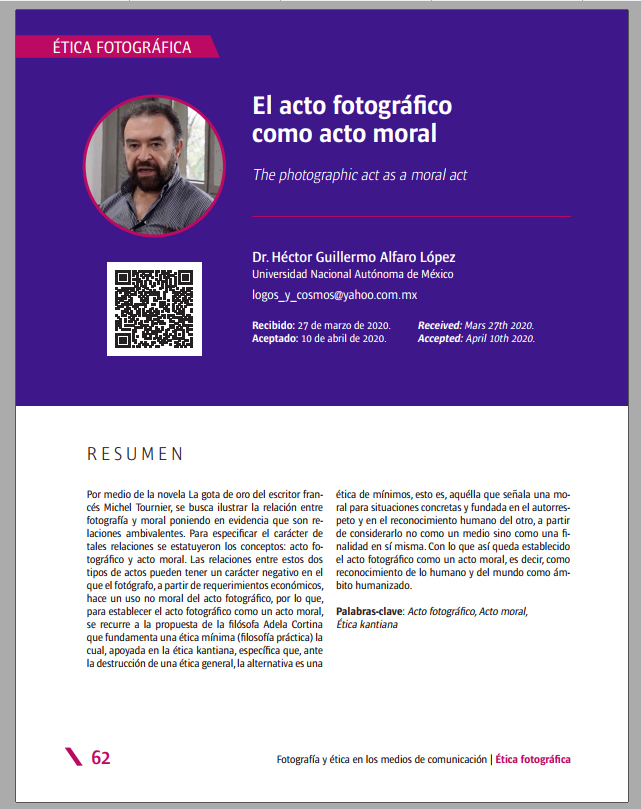The photographic act as a moral act
Main Article Content
Abstract
This paper uses Michel Tournier’s novel, Golden Droplet, to illustrate the ambivalent relationship between photography and morals. The relationship between the photographic and the moral acts can have a negative character, in which the photographer -normally owing to economic reasons- makes non-moral use of the photographic act. To establish the photographic act as a moral act, this paper seeks support in the thinking of philosopher Adela Cortina, who puts forth a minimal ethics (ética mínima) or practical philosophy which, based on Kantian ethics, suggests that the collapse of general ethics can lead to its replacement by an ethics that recommends moral practices for specific situations. Moreover, such ethics is based on self-respect and the recognition of others not just as means, but as ends in themselves.
Article Details
References
Bourdieu, P. (2003) Un arte medio. Barcelona: Gustavo Gili
Cortina, A. (2015), Ética mínima. Introducción a la filosofía práctica. Madrid: Tecnos
Dubois, P. (2008), El acto fotográfico y otros ensayos. Buenos Aires: La marca editora
Kossoy, B. (2014), Lo efímero y lo perpetuo en la imagen fotográfica. Madrid: Catedra
Rouillé, A. (2017) La fotografía. Entre documento y arte contemporáneo. México: Herder
Sontag, S. (2006), Sobre la fotografía. México: Santillana
Tournier, Michel, La gota de oro. Madrid: Alfaguara, 1988.
Williams, Bernard, Introducción a la ética. Madrid: Cátedra, 1998.


